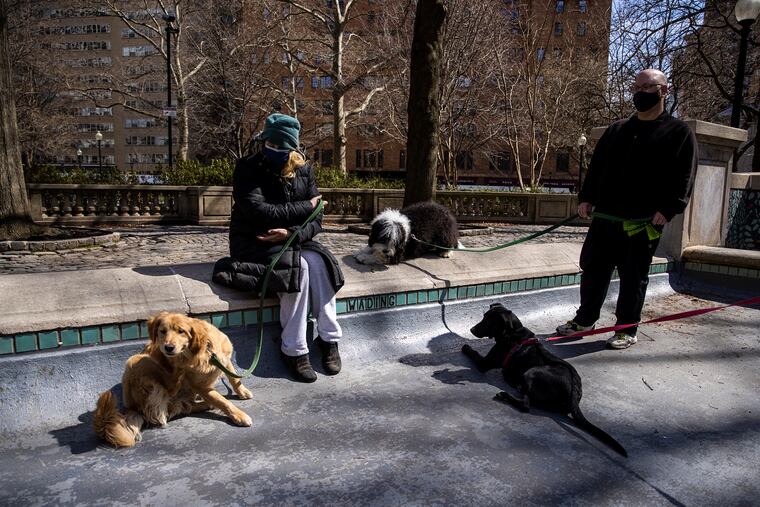Mystery respiratory dog illness hits Pennsylvania
The mystery respiratory dog illness spreading across the country now has cases in Pennsylvania according to the Department of Agriculture. Here's what you need to know.

Officials say cases of the respiratory illness impacting dogs across the country are now being reported in Pennsylvania.
The Pennsylvania Department of Agriculture said Wednesday that it had received reports of the ailment — which has commonly been billed as a “mystery” because of its lack of a name or origin.
“The Pennsylvania Department of Agriculture is monitoring this situation, but the best source of information for your pet remains your trusted veterinarian,” Shannon Powers, the Pennsylvania Department of Agriculture’s spokesperson, said in a statement.
It’s unclear where in Pennsylvania the illness has been reported.
“Much of the testing in Pennsylvania is done in private veterinary labs and dogs are treated by private veterinarians, so we do not have a count of how many dogs have been reported ill,” Powers said.
New Jersey has not reported any cases yet.
Some experts in Philadelphia suggest the illness isn’t a mystery at all, but the latest iteration of organisms found in kennel cough — known formally as canine infectious respiratory disease complex.
Still, veterinarians in Philadelphia and beyond are urging pet parents to be cautious this holiday season as reports of cases increase.
» READ MORE: What to know about the mystery dog respiratory illness
Cases of the illness, which can include such symptoms as loss of appetite and optical and nasal discharge, have been cropping up across the country, especially in Oregon. At least 14 states have reported cases. There is no official case count for the illness nationwide.
Like any respiratory disease, it spreads from close contact and sharing air with — even through barking by — an infected dog. People can also transmit the germs from one dog to another.
For this reason, communal areas with multiple dogs and shared items, such as water bowls, can increase the risk of a dog picking up the illness.
While it isn’t considered fatal, if left untreated it can linger or escalate into a secondary illness, such as pneumonia.
Veterinarians are cautioning pet parents to make sure their dogs are up to date on vaccinations and to not interact with other dogs more than necessary.
Still, cases don’t appear to be rampant. A spokesperson with the University of Pennsylvania School of Veterinary Medicine said the practice had seen “a couple” of respiratory cases as of Wednesday, but were hesitant to label them as the mystery illness.
Deborah Silverstein, a Penn Vet professor and chief of emergency and critical care, said the number of dogs impacted by respiratory illnesses ebbs and flows throughout the year.
She added that clusters of sick dogs increased after the main COVID-19 pandemic wave because of factors including more people adopting dogs, a rise in boarding dogs, and increased popularity in doggy day-care.
Several Philly-based vets have started sending e-mails to clients to try to curb anxiety surrounding the illnesses.
“It is definitely respiratory disease ‘season’ right now, which makes things scarier when you see articles about an unknown emerging disease,” Companion Pet Hospital personnel in Southwark said in an email to pet owners. “Philadelphia was seeing an increase in respiratory cases with more severe outcomes in early 2023. … While it is possible that we will see a return of this severe respiratory disease, we are not seeing it at this time. We are definitely seeing an increase in milder cases, however.”
What precautions can I take?
Experts say the best things dog owners can do to try to avoid or minimize the impact of the mystery illness include:
Ensuring that dogs are up to date on vaccinations, including Bordetella bronchiseptica, canine parainfluenza, and canine influenza (the bivalent vaccine, if available).
Decrease contact with other dogs.
Wash your hands before and after engaging with different dogs.
Consult with a veterinarian before taking a dog to communal areas such as dog parks, groomers, pet stores, or boarding sites. Minimize if necessary.
If boarding a dog or bringing it to a groomer, check to make sure that the facility requires up-to-date vaccinations from all guests.
Avoid communal water dishes.
Reduce contact with large numbers of unknown dogs and with sick dogs.
Keep sick dogs at home and seek professional care.